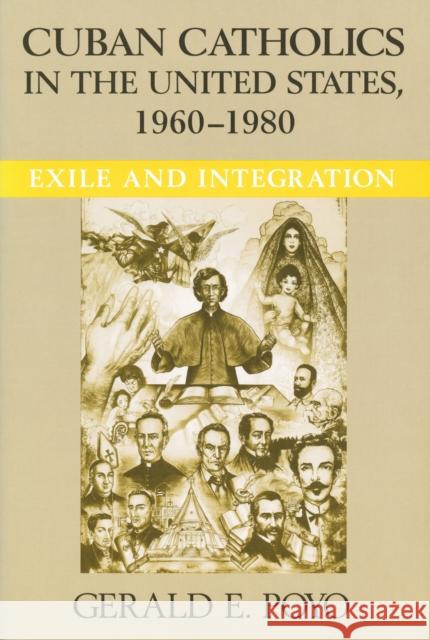Cuban Catholics in the United States, 1960-1980: Exile and Integration » książka
Cuban Catholics in the United States, 1960-1980: Exile and Integration
ISBN-13: 9780268038328 / Angielski / Twarda / 2007 / 384 str.
Cuban Catholics in the United States, 1960-1980: Exile and Integration
ISBN-13: 9780268038328 / Angielski / Twarda / 2007 / 384 str.
(netto: 485,11 VAT: 5%)
Najniższa cena z 30 dni: 503,14
ok. 22 dni roboczych.
Darmowa dostawa!
Everyday life for Cubans in the United States during the 1960s and 1970s involved an intimate interaction between commitment to an exile identity and reluctant integration into a new society. For Catholic Cuban exiles, their faith provided a filter through which they analyzed and understood both their exile and their ethnic identities. Catholicism offered the exiles continuity: a community of faith, a place to gather, a sense of legitimacy as a people. Religion exerted a major influence on the beliefs and actions of Cuban exiles as they integrated into U.S. culture and tried at the same time to make sense of events in their homeland."Cuban Catholics in the United States, 1960-1980 "examines all these facets of the exile and integration process among Catholics, primarily in south Florida, but the voices of others across the United States, Latin America, and Europe also enter the story. The personal papers of exiles, their books and pamphlets, newspaper articles, government archives, and personal interviews provide the historical data for this book. In his thorough examination Gerald E. Poyo provides insights not only for this community but for other faith-based exile communities. Gerald Poyo has given us a singular work of scholarship on a crucial dimension of the history of post-1959 Cuban migrants to the United States. A fitting sequel to his seminal 1989 work on the nineteenth-century emigres, " Cuban Catholics in the United States" combines Poyo s skills as a consummate researcher with a lucid writing style that takes the reader on one of the most important heretofore untold stories of the Cuban presence in this country. This work is destined to not only be an essential text in the history ofCubans in the U.S., but also on Latino Catholic history. Lisandro Perez, Florida International University Gerald Poyo captures the forces of faith, exile, and integration in motion among professed Cuban Catholics who at first embraced revolution in their homeland but were compelled to leave after Fidel Castro s rise to power . . . an essential book not just for scholars, but for anyone who seeks to understand more deeply the anguish, struggle, and unyielding endurance of Cuban Catholic exiles. Timothy Matovina, University of Notre Dame Poyo provides a splendid overview of how Catholic thought shaped Cuban action and reaction to the momentous events of the second half of the twentieth century, in Cuba and in exile. A highly informative account of the complex process of emigration and assimilation at the intersection of politics and religion. Louis A. Perez, Jr., University of North Carolina at Chapel Hill"











